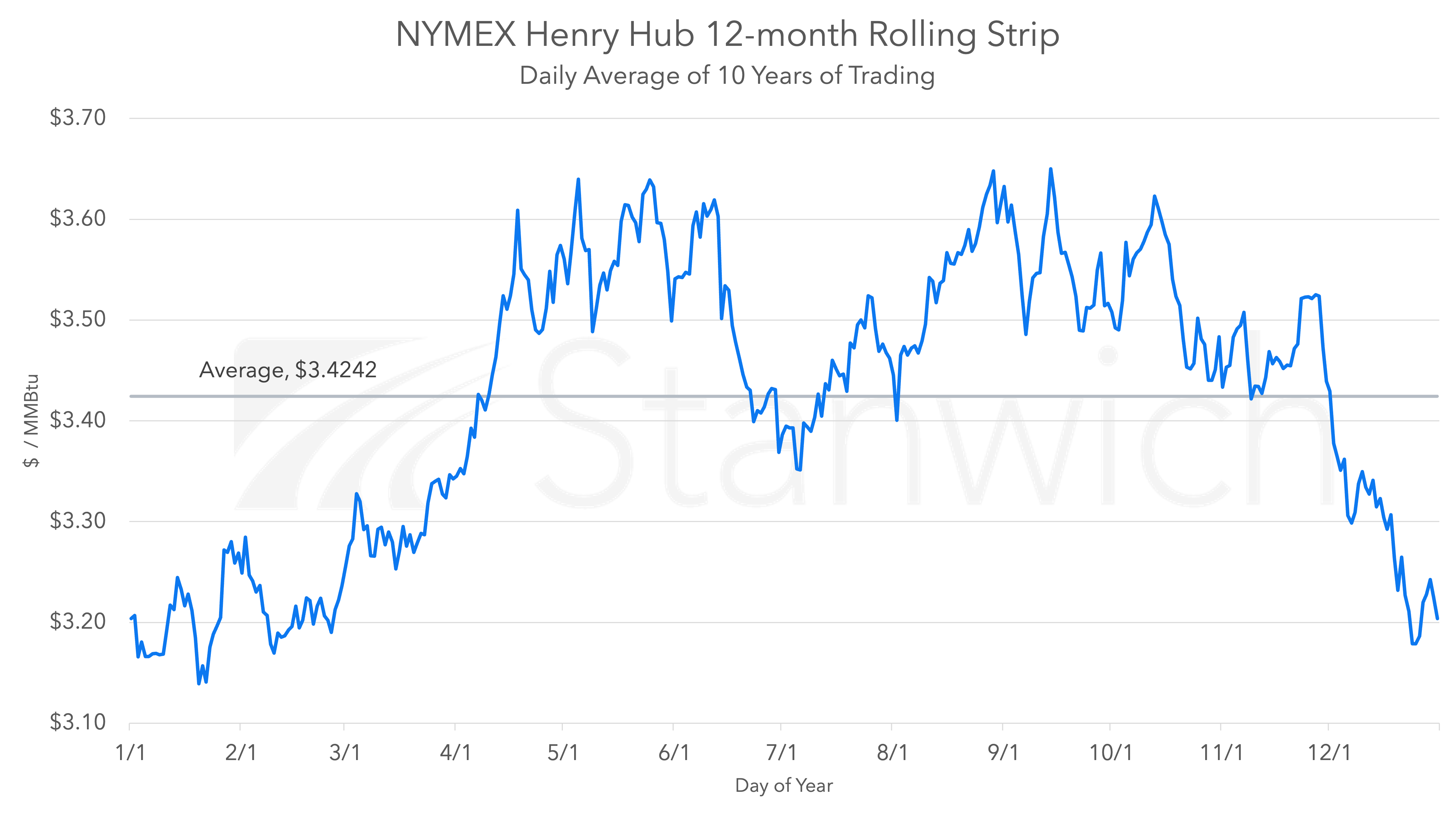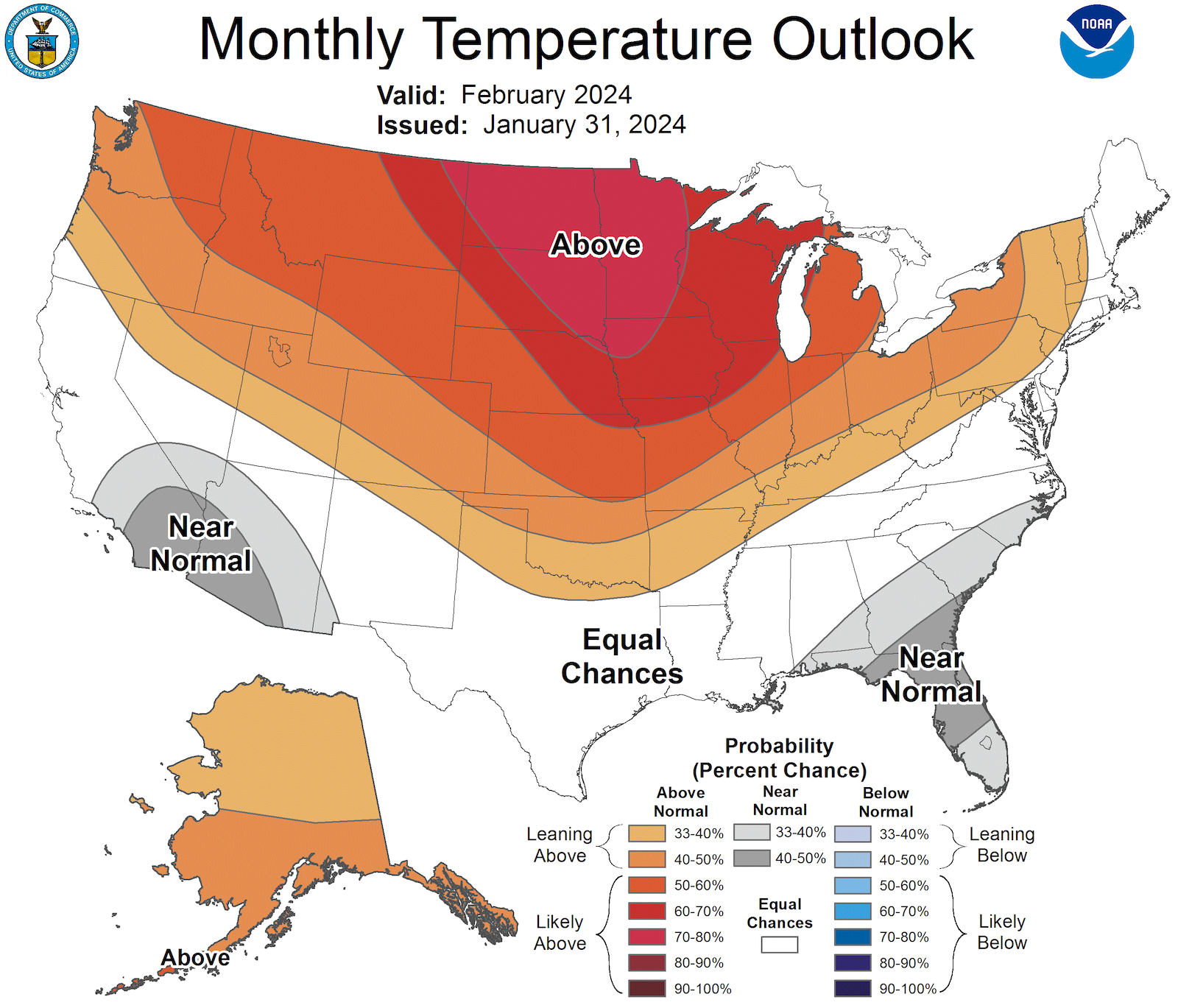Explore Other Resources
Subscribe Today!
Why 'don't buy in winter' no longer applies.
One of the most common sayings we hear in the energy space is don't buy in winter. An analysis of more than a decade of market data shows the cheapest time to purchase is actually during winter months.
The following graph takes a simple 12-month rolling strip, a strong indicator for market trends across electricity and natural gas, and averages the price by day from January 1st through December 31st. The result is in direct contrast to historical assumptions. The three cheapest months in order have been January, February, and December. The most expensive have been May, September, and August.

The pattern illustrated in the chart above makes logical sense when considering many of the warmest winters on record have occurred in the last ten years. Winter 2016, 2017, 2020, 2021, and very likely 2023 will be the five warmest of the last 20 years across several major cities. This market phenomenon occurs as prices soar in anticipation of winter, driven by fears of prolonged cold weather leading to a scarcity of supply. When fear gives way to reality, prices then move lower.
For more than a decade, the two cheapest months to purchase have been January and February.
It is important to note winter costs can still be higher than other times of the year, particularly in the Northeast where natural gas is used for both heating and electricity generation. And markets are also more volatile during heating season, which is a great reason to avoid having a contract expire in winter. But energy supply contracts, which are commonly 24 months or longer in length, are driven by what the market expects costs to be in the future. Not what prices are currently.
As of early February 2024, the US has experienced a relatively mild winter and forecasts predict more of the same. And once again prices have retreated to an ideal position. The takeaway is the best strategy follows the data, including when the numbers contradict long held assumptions.

